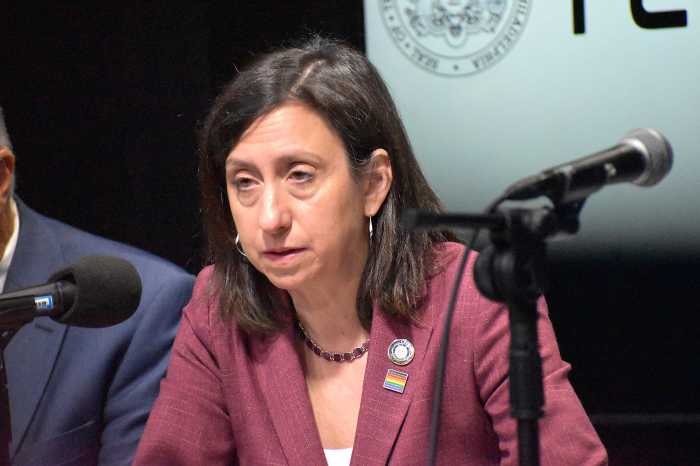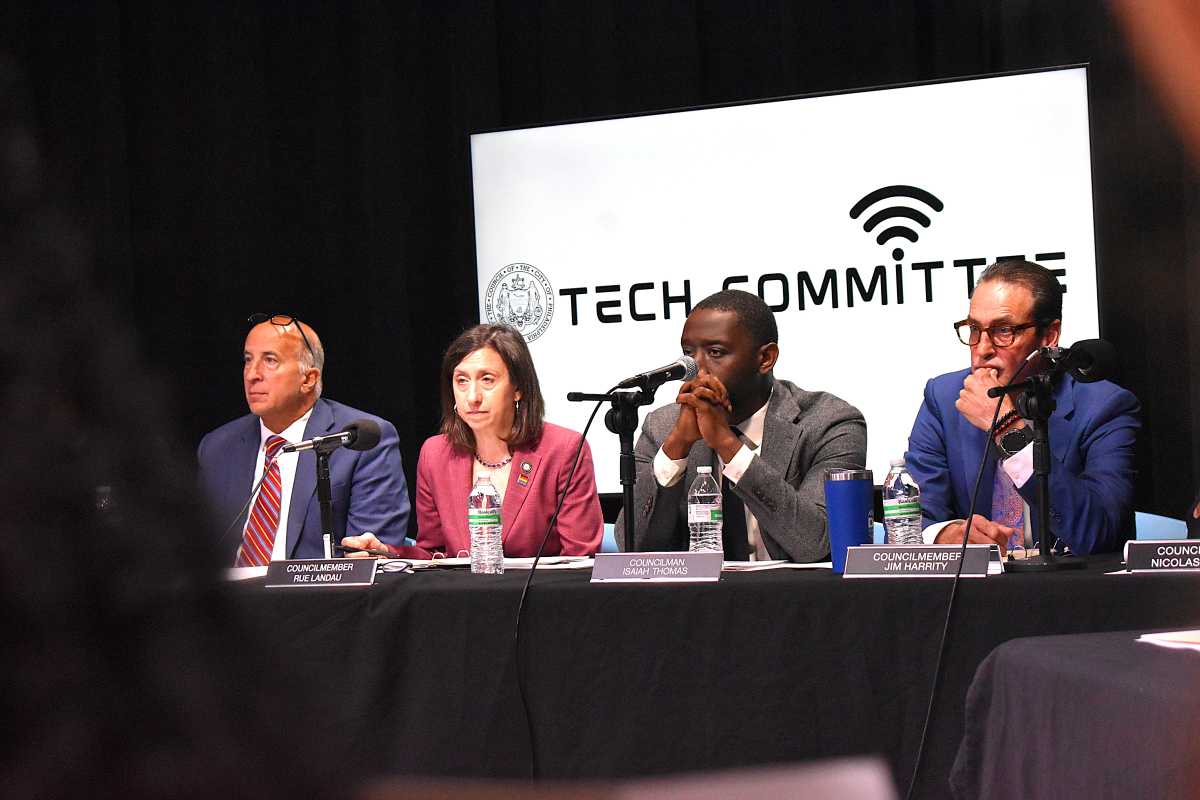Mayor Cherelle Parker’s administration plans to roll out artificial intelligence guidance and training for city employees in the coming weeks, officials told lawmakers Wednesday.
The revelation came during a three-hour City Council meeting on AI, a first-of-its-kind hearing in Philadelphia about the local government’s use of the technology, according to Rue Landau, the legislator who organized the gathering.
Representatives from the mayor’s team had few answers to questions about how AI is utilized for public safety and surveillance purposes, and no one from the police department testified.
“I do not want to give up my freedoms for the sake of somebody else’s idea of safety,” Councilmember Jimmy Harrity said. “I’m very leery of this kind of technology.”
Landau asked directly if the Parker administration would use AI to collaborate with President Trump’s Department of Homeland Security and Immigration and Customs Enforcement to carry out his deportation campaign.
“We’ll get back to you on that question,” replied Kristin Bray, Parker’s chief legal counsel and director of Philly Stat 360.
“The city’s non-answers today were shocking and disappointing,” Devren Washington, founder of the Philly Tech Justice Coalition, said in a statement following the hearing. “But the people spoke clearly: we want parks and libraries, schools and jobs, not black box AI that makes our lives worse while making billionaires richer.”
Melissa Scott, Parker’s chief information officer, acknowledged concerns about municipal employees entering sensitive city data into AI chatbots, which could expose the information. That will be addressed in the forthcoming policy, and the city is nearing an agreement with Microsoft Copilot to create a sealed-off tool for local government workers, she added.
In late winter or early spring, the Parker administration will set up a cross-departmental AI governance committee to continuously review and update policies, Bray testified. As of now, the body will incorporate officials from the city’s Office of Innovation and Technology, Law Department, Office of Human Resources and Chief Administrative Officer, she said.
Multiple lawmakers stressed the need to include the voices of residents or conduct an engagement process with citizens.
“We’re going to consider what public input we can take,” Bray told Council.

Scott distinguished between machine learning programs that predict and sort information based on a particular algorithm and generative AI – such as ChatGPT – which creates “new” content from data pulled from the internet.
“If anyone in the world would say they are an AI expert, they would be lying because it’s continuously transforming, morphing into new technologies,” Scott added.
The remark drew an audible response from those in attendance, many of whom were professors, attorneys and others who specialize in AI issues and were waiting to testify.
Alli Finn, of the AI Now Institute, cautioned legislators to start with a problem and consider all possible solutions, rather than procuring AI tools and forcing them into municipal systems.
Haverford College computer science professor Sorelle Friedler, who helped develop AI policy in the Biden White House, noted that even an algorithm with an error rate of 1 or 2% could detrimentally impact thousands of Philadelphians.
“This also means there are times when the right answer will be to prohibit AI use,” Friedler said. “In cases where errors would be damaging or hard to catch, AI can’t be the answer.”
Council members also expressed unease over documented racial bias in some AI systems. Community leaders coupled that anxiety with a deep skepticism of major tech companies and their billionaire owners.
“Man, I feel like we about to get played,” Shawmar Pitts, managing co-director of Philly Thrive, told lawmakers. “Don’t let them play us.”
Landau, in her opening remarks, said the hearing “is setting the stage for an important conversation about data privacy, racial justice, tech equity” and other issues, and she indicated that there will be future Council discussions about the topic and other emerging technologies.






























